-

Join us on for a 5k run or walk along the Thames, starting and ending at the summit venue.
Open to all delegates
-
How is the European Union addressing critical food security challenges while promoting innovation in farming to build sustainable and resilient food systems?
-
- How can Europe bridge the gap between ambitious climate policy and on-the-ground farming realities, ensuring that sustainability targets don’t undermine farmer livelihoods? What are the trade-offs?
- With rising geopolitical tensions, tariffs and climate shocks, how can Europe strengthen food security and invest in domestic resilience, without driving up consumer prices or sidelining small-scale producers? What investment, infrastructure and long-term planning is needed to shift towards food sovereignty and regional supply chains?
- Why is agricultural innovation not scaling up as needed, despite promising technologies? What will it take to rapidly scale agtech, biologicals, and low-input, carbon-smart practices systems, whilst making sure innovation remains practical, affordable, and accessible to all producers?
-
- How will the Carbon Removal Certification Framework (CRCF) reshape investment, verification and commercial strategy for carbon farming? What does it take to build trust, scale, and returns in this newly certified market?
- How can agri-food and land-based industries prepare for compliance and the opportunity landscape of this EU-wide voluntary framework?
-
- How are food brands, retailers, cooperatives, and farmers working together to collectively reduce emissions and embed sustainability into complex supply chains, ahead of 2030 commitments?
- What does meaningful, on-the-ground collaboration between farmers and supply chain partners look like today, and how are such partnerships demonstrating tangible results in reducing risk and advancing on sustainable goals?
- What role are science-based technologies and data platforms playing in supporting farmer and supply chain partners to measure outcomes and apply learnings across business operations?
- What can we learn from new financing and partnership models delivering measurable impact across climate, biodiversity, and rural livelihoods, to encourage implementation at scale?
-
- What’s needed to standardise Scope 3 emissions data collection across the supply chain?
- How is sustainability data informing operational decisions for farmers, processors and retailers, from procurement to sourcing strategies to farm-level practices and supplier engagement?
- How are companies preparing for incoming regulations like the EU's Corporate Sustainability Reporting Directive (CSRD), and how can reporting frameworks also delivery business value, by reducing costs and identifying risks?
- How are companies moving beyond compliance to create transparent, traceable value chains that support long-term environmental goals and improve stakeholder trust?
- What tools and AI-powered platforms are enabling suppliers to navigate compliance demands?
-
Hosted by:

-
- As demand for nature-based solutions rises, how is natural capital being recognised and financed as a credible asset class?
- How are sustainability targets influencing asset owners and institutional investment strategies, and reshaping investment priorities?
- What frameworks are needed to standardise valuation, benchmarking, and impact measurement to unlock institutional capital at scale?
- How can collaboration between financial institutions, farmers, and agtech providers ensure that carbon and ecosystem services generate both ecological and financial returns?
-
- What drives a farmer’s decision to invest in sustainable technologies, and how can regenerative agriculture be positioned as a commercially viable model for growers outside of pilot programmes and early adopters?
- How are data-driven technologies to monitor GHG emissions, soil health, biodiversity, and carbon sequestration supporting farmers to make the change? As regen programmes mature, what key milestones have been achieved, to show efficiency and support adoption at scale?
- What co-financing models between retailers, food brands, banks and technology providers are supporting the effective roll out of regenerative tools and incentives to growers, considering the time required to observe results from this transition? What lessons can be drawn from successful partnerships?
-
- How are AI, digital platforms, and precision technologies transforming on-farm decision making? What real-world outcomes are growers and processors seeing from AI and digital tools in areas like planting, crop monitoring and input management?
- How can generative AI and large language models improve agronomic decision-making and knowledge delivery at scale?
- Where are we on data integration, standardisation and interoperability and how does this unlock faster, informed decision-making on the farm?
- What industry collaborations between input providers and OEMs are needed to scale practical, field-ready AI solutions?
Speakers
-
How is artificial intelligence being applied across the agri-food value chain? This presentation will explore how AI can streamline operations, surface actionable insights, and reduce complexity across fragmented data systems for the agri-food value chain.
-
How is artificial intelligence being applied across the agri-food value chain? This case study will explore how artificial intelligence and data-driven technologies are revolutionising precision viticulture.
-
Featured start-ups: Auxin Solutions, BugBug, Elaniti, HarvestEye, NutriSen, Paul-Tech, Senus, Soilmonitor
-
-
- How are shifting market dynamics influencing partnerships between equipment manufacturers, agtech start-ups, and robotics companies, and what does this mean for driving efficiency and sustainability on the farm?
- Is the rise of strategic corporate venture capital (CVC) reshaping how equipment manufacturers invest in and adopt emerging technologies?
- How are CVCs and robotics start-ups leveraging venture clienting to accelerate deployment and demonstrate commercial viability?
- What does this evolving collaboration model mean for the future of mechanisation, automation, and precision farming in agriculture?
Chairperson
-
This session will spotlight how Quercus Biosolutions is pioneering the use of generative AI to design novel mini-proteins for targeted crop protection, accelerating discovery and development while reshaping the future of sustainable agriculture.
-
- What scientific breakthroughs are currently shaping agri-food research, and how can they be translated into real-world agricultural solutions?
- What are the key barriers to translating university-led scientific breakthroughs into practical applications, and what models or collaborations are needed to bridge this gap?
- How can universities, corporates, and farmers collaborate more effectively to scale scientific innovation, and what partnerships are crucial for success?
- What innovations from other industries, such as metagenetics, could significantly impact agriculture, and what R&D developments can we expect in the next decade?
Chairperson
-
- How is success being redefined in today’s cautious funding climate? How are investors and founders rethinking risk, timelines and value creation across agri-food innovation? What does sustainable start-up growth look like in a market increasingly shaped by PE rollups and capital scarcity?
- What alternative capital pathways, such as private and public markets or hybrid models, are needed to drive sustainable long-term growth and credible exits? Are today’s investment models (VC, PE, CPG partnerships) incentivising tactical moves over strategic vision?
- How can we unlock greater involvement from institutional and impact investors, such as pension funds, infrastructure capital and sovereign wealth?
Chairperson
-
Let’s raise a glass to a great first day! You’re invited to join us in the exhibition area to celebrate over drinks – the perfect opportunity to make new connections and catch up with familiar faces in a vibrant atmosphere.
Exclusive for 2025: You’ll have the chance to try Fielden whisky, made from regeneratively grown grains, and Arbikie’s climate-positive gin and vodka, made from peas.
-
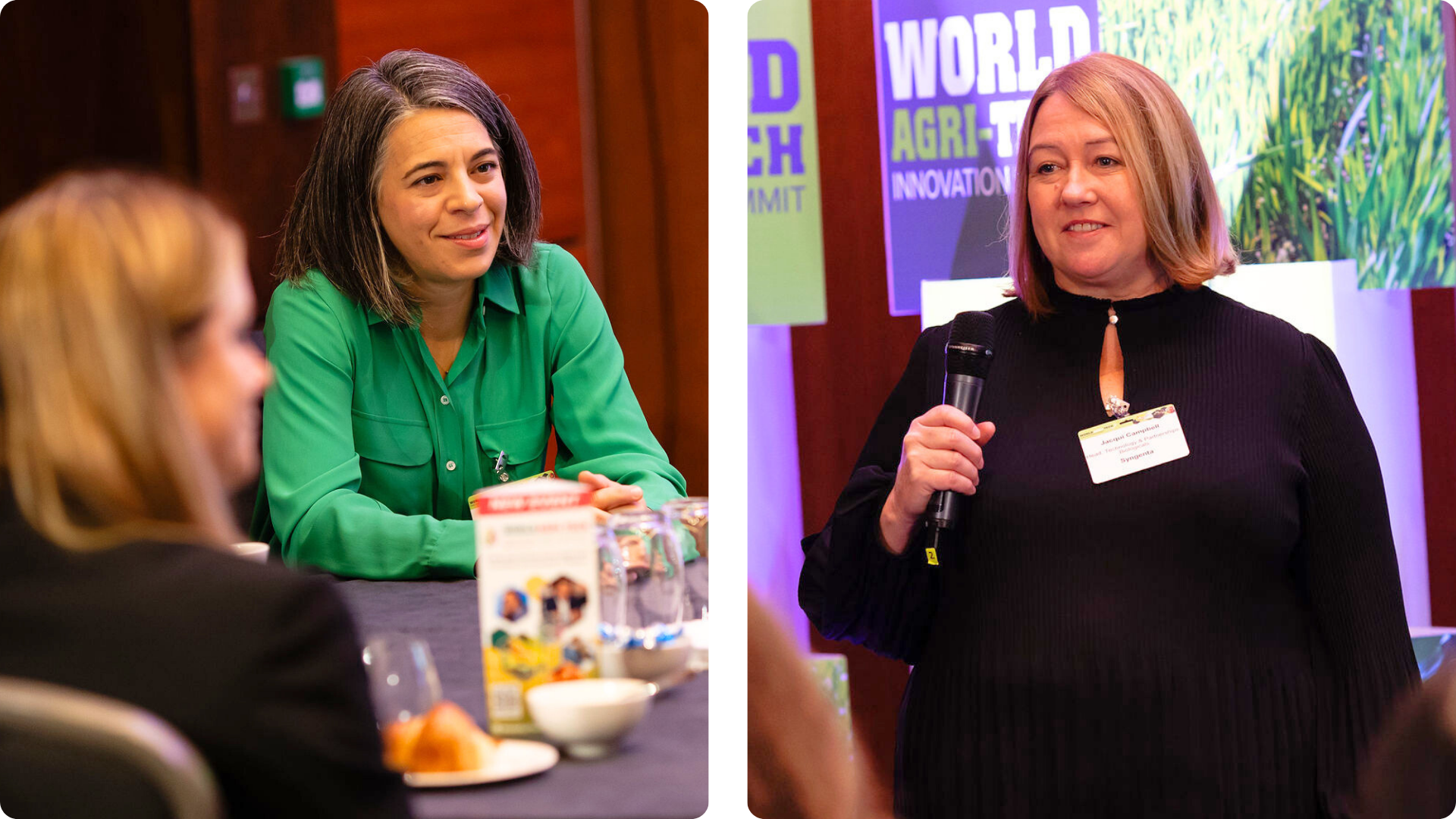
Join us for a morning of meaningful networking and conversations celebrating the women driving innovation and impact across agriculture.
Through candid discussions on mentorship, resilience, and building inclusive networks, and real stories from women who’ve built meaningful careers in agriculture, we’ll explore how we can collectively support the next generation of diverse female talent.
Open to all women attending the summit
-
- As water stress intensifies, how can governments and industry join forces to build real resilience? How can public-private partnership move beyond pilots to deliver scalable, systematic solutions for sustainable agriculture and water management, while also protecting biodiversity?
-
- How can banks unlock capital and create the right conditions for a more sustainable and resilient food system in Europe?
- What role do data-driven technologies and ESG metrics play in improving the risk assessment models used by banks? What input is needed to make better financial products using operational data from the farm and the value chain?
- How can we foster dialogue between farmers and banks to scale blended finance structures that lower risk and improve capital flow into regenerative and sustainable farming systems?
- What co-financing models, beyond government incentives, can be developed between NGOs, retailers, and banks to de-risk the transition to sustainable farming and reward farmers for implementing carbon insetting practices?
-
Hosted by:

-
- What agronomic and supply chain risks are most urgent for producers to solve today—and how can technology and collaboration help mitigate them?
- How are AI, satellite data and remote sensing enabling more precise granular and localised risk assessment for farmers, insurances and buyers?
- What new tools are emerging to help lenders and insurers offer upfront capital and tailored coverage amid climate volatility? How are AI and machine learning changing the game to leverage vast amounts of data and improve accuracy and stress-test scenario planning?
- What collaborations are needed between policymakers, scientists and financial institutions to build more resilient agricultural system?
-
Featured start-ups: AgPlenus, B-COS, Kybele’s Garden, NoMaze, OlsAro, Generare, Landman.Bio, Zymofix
-
-
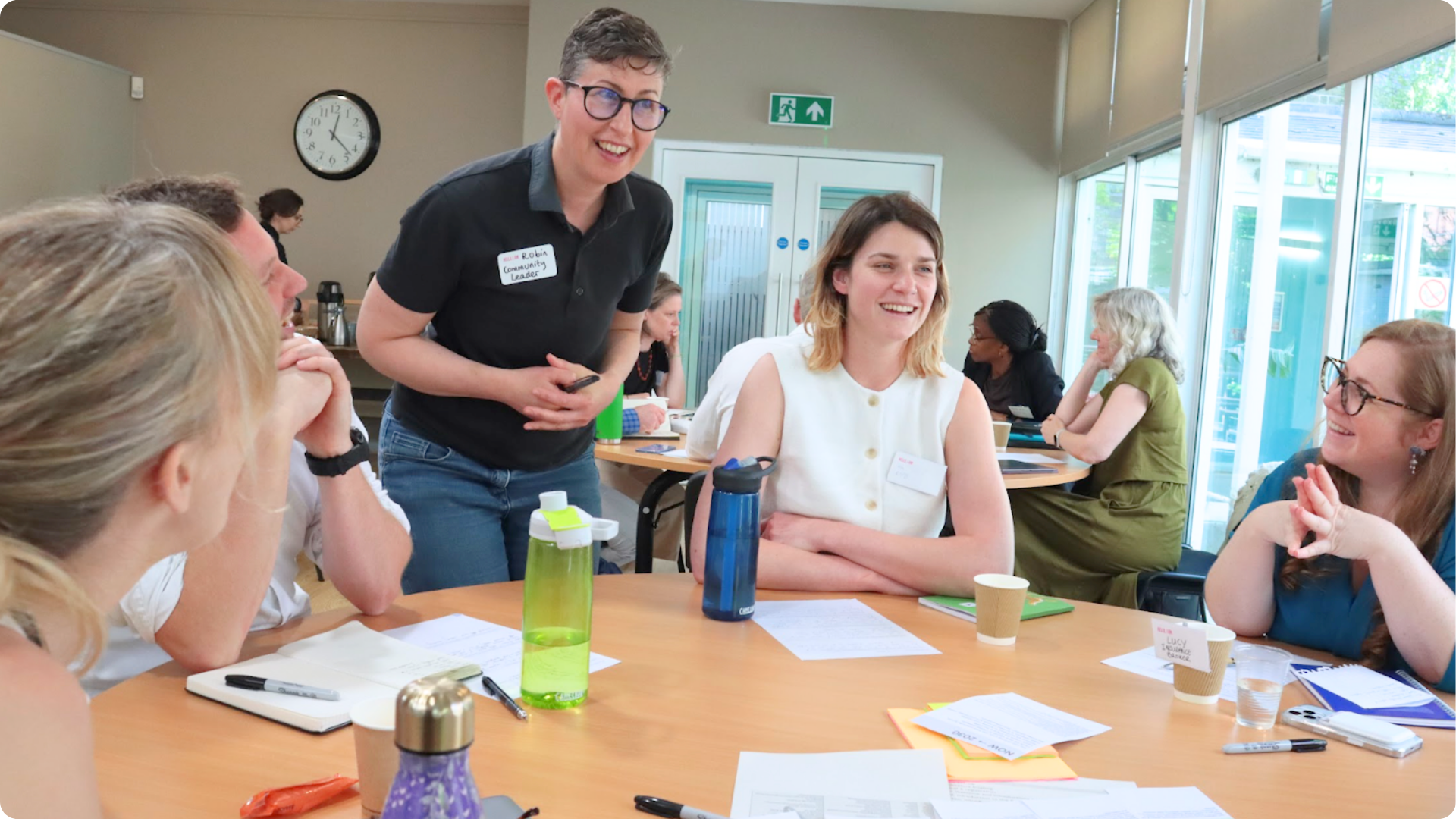
This is not a panel or a presentation, it’s a fully immersive, interactive simulation designed to stress-test the food system through role-play.
Take on the role of a policymaker, innovator, farmer or retailer. Working in small teams, you’ll use your real-world expertise to navigate five years of food system turbulence, from climate extremes and geopolitical instability to supply chain breakdowns and consumer pressure.Open to all delegates–come and play your part
Chairperson -
- With crop failures intensifying due to extreme weather events across Europe, how are food companies assessing and mitigating both water scarcity and pollution risks across their sourcing regions? What early-warning tools and partnerships are helping prevent supply chain disruption?
- How are investors, banks, and insurers pricing water risk into agri-food portfolios, and what tools are emerging to quantify exposure and incentivise better water outcomes?
- How do we integrate biologicals, digital tools, and agronomic services to optimise water use in rain-fed farming operations to reduce water waste, improve soil health, and prevent runoff into local ecosystems?
- How can regulation and multi-stakeholder partnerships—between farmers, corporates, tech providers, and local authorities—be used to unlock private capital and align water stewardship with food production and regional sustainability goals?
-
Discover how AI-driven crop breeding is transforming sugarcane production and how food and beverage companies are partnering with start-ups to enhance the sustainability and future resilience of high-impact crops within their supply chains.
-
- With climate volatility threatening staple crops and commodity supply chains, breeders and supply chain leaders are urgently rethinking how to accelerate the development of resilient and sustainable crop varieties. How are start-ups leveraging AI to dramatically reduce breeding timelines?
- How are machine learning and gene discovery tools helping identify key traits more quickly and accurately than traditional genomic methods? Which crops and traits are most critical from both a commercial and environmental perspective?
-
- Lack of alignment and fragmented lobbying across Europe with regulatory delays are slowing the progress of biologicals and New Genomic Techniques (NGTs), hindering the adoption of innovative solutions that could replace traditional chemistry. What would it take to present a unified industry voice to regulators and policymakers in Europe?
- How can companies navigate innovation bottlenecks when faced with regulatory uncertainty and delays? How could cross-industry collaboration, involving agribusinesses, start-ups, and associations, help move the needle faster and overcome these challenges?
- Which real-world case studies demonstrate the successful deployment of new crop chemistry to address disease or productivity challenges—and what can we learn from them?
- What strategies are companies using to keep innovation moving forward and bring products to market faster?
Chairperson
-
Join collaborative roundtable sessions designed to spark discussion and creative problem-solving around the industry’s most pressing challenges.
Each roundtable discussion group is hosted by an industry expert on a specific challenge offering you a valuable opportunity to network, exchange solutions, and leave with fresh ideas to advance your work.
How do we Engage Farmers on the Sustainable Journey with Supply Chain Partnerships?
Lisa Ehde, VP Agriculture, ARLAWhat’s the Retailer’s Role in Reducing On-Farm Emissions?
Sophie Throup, Technical & Sustainability Director, Morrisons, MYTON FOOD GROUPHow Can Tech & Data Drive Resilience for Climate and Water in Ag?
Truke Smoor, Global Sustainability Director – Water, CARGILLScience VS Trust: How Do We Build Confidence in Biologicals?
Jérôme Cassayre, Head of Biologicals Research, SYNGENTA CROP PROTECTIONHow can we Align Innovation, Capital and Agricultural Timelines to Finance Agri-Tech Growth?
Hannah Senior, Interim CEO, UK AGRI-TECH CENTREHow Can we Bridge Science and Partnerships to Advance Gene Editing Innovation in Agriculture?
Mat Müller, Senior Director, Corteva Catalyst, CORTEVA AGRISCIENCEHow do we Unlock the Full Potential of Corporate-Startup International Collaboration in AgTech?
Karl Collins, Open Innovation and Ecosystem Development, BAYER CROP SCIENCEWhat Makes Farmer-Backed VCs a Unique Force in Financing AgTech?
Etienne Jobard, Agri-FoodTech Innovation Studies Director, UNIGRAINSHow can Climate Risk Mapping Protect Crop Yields and Build Resilience for UK Agriculture?
Jesse Abrams, Climate Risk Impact Fellow, GREEN FUTURES SOLUTIONS, UNIVERSITY OF EXETERMore to be announced!
Speakers
-
- It’s a slow path-to-market beyond the pilot stage for start-ups and SMEs in agtech. How can we shorten the timeline for technology development?
- What does farmer-led research and innovation mean for agtech? Where is it shaping the development of impactful, scalable agtech tools?
- What feedback have farmers provided through on-farm testing, and how is this influencing the evolution of agricultural technologies?
- What key outcomes and insights have emerged from field trials, and how are they impacting the performance and scalability of new technologies?
- How can we foster effective collaboration between farmers, researchers, policymakers, corporates and investors to accelerate the commercialisation of new technologies?
-
- With valuations stabilising and funding returning to pre-COVID levels, what does the current investment landscape look like for European agri-food and agtech, particularly when it comes to corporate capital, strategic bets, and where the next wave of innovation will come from?
-
- If the current investment trajectory calls for a market re-set to enable the agri-food industry to flourish, what is the responsibility of corporates, governments, farmers and investors to support the industry and navigate headwinds?
- How do we continue funding early-stage ventures that require years of field trials and data collection, and keep a healthy pipeline of innovation?
- How are investors evaluating solutions and technologies in adjacent industries with applications in agriculture?
- What cross-sector investments and partnerships hold the most potential to support the growth and prosperity of the European agtech ecosystem?
)








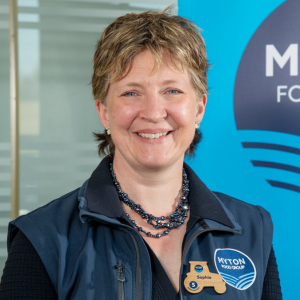



























































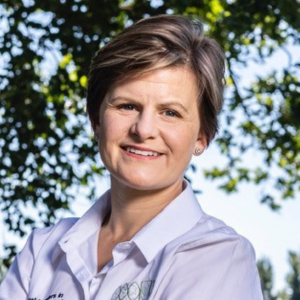


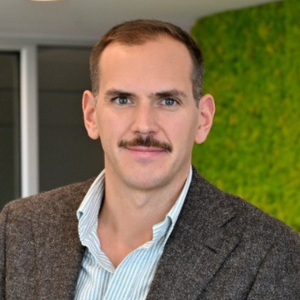








)
)
)
)
)
)
)
)
)
)
)
)
)
)
)
)
)